Its all about flavour. We explain the difference between Arabica and Robusta coffee beans
Arabica vs Robusta? Here's everything you need to know!
Coffee lovers worldwide are well aware that not all coffee beans are created equal. If you enjoy a good cup of coffee, you've likely come across these two species of coffee bean, but do you know the difference? We imagine you are probably aware that Arabica is the superior quality coffee bean and the Robusta is a darker more bitter varietal - but Robusta definitely has its place too.
These two coffee bean varieties, Arabica and Robusta, dominate the global coffee market, each offering distinct flavours, aromas, and characteristics. Understanding the differences between Arabica and Robusta beans is essential for coffee lovers seeking the perfect cup. In this comprehensive guide, we delve into the slight differences between the Arabica and Robusta coffee beans, exploring their origins, flavour differences, cultivation methods, and let you in on a few bits of info you may not have known!
By the end of this RISE coffee article, you'll know whether Arabica or Robusta coffee is better for you based on your taste preferences and level of caffeine intake preferred.
What Are Arabica Coffee Beans?
Arabica beans are widely renowned for their superior quality and more delicate and interesting flavours. Arabica coffee beans are known for their sweetness, complexity, and acidity (usually resulting in a balanced cup of coffee). The beans originate from the high-altitude regions of Ethiopia and Arabica beans thrive in subtropical climates with ample rainfall and rich soil. Our own RISE Ugandan coffee beans grow at 2300 meters above sea level (masl) in a tropical climate. Cultivating Arabica coffee requires meticulous care, as the plants are vulnerable to pests, diseases and changes in climate. They also grow at a slower rate and require shade.
Arabica coffee beans make up around 60% of the worlds coffee production with Guatemala, Brazil, and Colombia at the forefront of global producers of Arabica coffee.
What Are Robusta Coffee Beans?
Robusta beans account for around 40% of global production today but at one point this number was much higher. Robusta coffee is generally used in instant or lower grade coffees. A few of the reasons for this is because Robusta is cheaper (due to it being easier to produce) as well as being able to withstand higher temperatures during processing. Arabica beans tend not to fare well when they have been over roasted. Robusta is known for being darker and more bitter and we find a cup of Robusta coffee is usually in need of milk and sugar! There are some roasters roasting Robusta and we've seen it on our supermarket shelves, but we would watch out for overpaying for a lower grade product.
Robusta beans (Coffea canephora) are hardier and more resilient than Arabica plants. Native to Africa, specifically the Congo and Uganda, Robusta coffee trees are adaptable to various environmental conditions, including low altitudes and harsh climates. This resilience makes Robusta cultivation less labour-intensive and more cost-effective compared to Arabica.
It is certainly a more "robust" coffee plant compared to many other species due to its resilience. In turn, this gives Robusta coffee twice as much caffeine as Arabica. If you want a stronger, more intense flavour with an increased caffeine content, you should buy Robusta beans.
What Are The Differences Between Arabica and Robusta Coffee Beans?
One of the most significant distinctions between Arabica and Robusta coffee beans lies in their flavour profiles. Arabica beans are prized for their complex and nuanced flavours, often featuring notes of fruit, floral, and citrus. These beans typically yield a smooth, mellow cup with a well-balanced acidity and moderate caffeine content.
In contrast, Robusta beans are known for their bold, earthy flavours and higher caffeine content. Robusta coffee tends to have a stronger, more bitter taste with hints of chocolate and nutty undertones. While some coffee enthusiasts appreciate the robust flavour of Robusta, others may find it too intense or harsh.
3 things you need to know about Arabica Coffee
Arabica coffee is associated with high quality, flavoursome coffee. Often best roasted at a medium level to protect the bean and flavour profile. Over roasting doesn't work well for Arabica beans. Below are three features specific to Arabica coffee beans.
1. Higher acidity: giving the coffee a well balanced more complex flavour
2. Lower caffeine but better taste: 1.2% caffeine with a variety of flavour profiles
3. Higher priced specialty product: A higher price per kilo often roasted by specialty coffee roasters
3 things you need to know about Robusta
If you looking for a 'strong' cup of coffee and not too fussed on flavour, then Robusta could be for you. Robusta is known for its rich, full-bodied, powerful taste. Robusta Coffee Beans typically grow in Central America and Africa.
1. High caffeine: 1.7% to 4% caffeine content
2. Lower quality = lower price: Usually found in instant coffee
3. Darker, oily shine: roasted dark, bitter with flavour profiles of chocolate and typical espresso coffee.

Caffeine Content in Arabica and Robusta Coffee
Caffeine content is another crucial factor distinguishing Arabica and Robusta coffee beans. Arabica beans contain approximately 1.2% caffeine on average, making them ideal for those who prefer a moderate caffeine intake. In contrast, Robusta beans boast a higher caffeine content, typically ranging from 1.7% to 4%. This elevated caffeine level contributes to the bold, energising qualities of Robusta coffee. Watching your caffeine content is critical to whether you get jitters or problems sleeping. One cup of Robusta could have a negative affect if this is the case.
Quality vs Price
Quality and Price: Due to their superior flavour and higher demand, Arabica beans are generally more expensive than Robusta beans. Arabica coffee often commands a premium price and used by specialty coffee roasters, reflecting the meticulous cultivation and processing methods required to maintain its quality. In contrast, Robusta coffee is more affordable and widely available, making it a popular choice for commercial blends and instant coffee products. If you drink your coffee black, or as a filter or in a cafetiere you should opt for Arabica.
Frequently Asked Questions (FAQ's)
Which Is Better Arabica or Robusta?
There is no real answer to this question, it is really dependent on your taste preferences. Arabica coffee is generally considered to be the higher quality bean with the more flavoursome profile and therefore does command a higher price. Robusta are higher in caffeine and darker in flavour - typically used in instant coffee. At RISE coffee box, our preference is for Arabica beans as we prefer high quality products with more flavour. All of the coffee that goes into our box is 100% Arabica. However, Robusta is the more popular choice among cafes that serve espressos, while Arabica is found through artisanal specialty coffee roasters.
Is Arabica coffee healthier than Robusta?
Arabica coffee and Robusta coffee have similar health properties and health benefits, both full of antioxidants and vitamins.
Arabica coffee is more acidic, which may cause some people with stomach issues slight problems if drunk in large quantity. Robusta may not be the best option for you if you are sensitive to caffeine since it has twice the concentration of caffeine compared to Arabica beans.
Why is Arabica Coffee More Expensive Than Robusta?
Robusta coffee beans are generally cheaper due to their quality and demand.
Specialty Arabica coffee will be more expensive per 100g compared to Robusta.
Is Instant coffee Arabica or Robusta coffee beans?
Instant coffee is made from Robusta coffee as it works well when dissolved into hot water. Arabica coffee would not work as well as instant as the bean doesn't like the high temperatures and isn't as durable. There are a few roasters trying their hand at "specialty instant coffee", but we are not yet convinced.
Some people drink instant coffee because it is cheaper, convenient and goes well with milk.
Conclusion: In the world of coffee, the choice between Arabica and Robusta beans ultimately comes down to personal preference. Whether you prefer the delicate flavours of Arabica or the robust kick of Robusta, understanding the differences between these two varieties helps you make informed decisions when selecting your next brew. Ultimately, experimenting with different coffee beans allows you to explore a diverse range of flavours and discover your perfect cup of coffee.
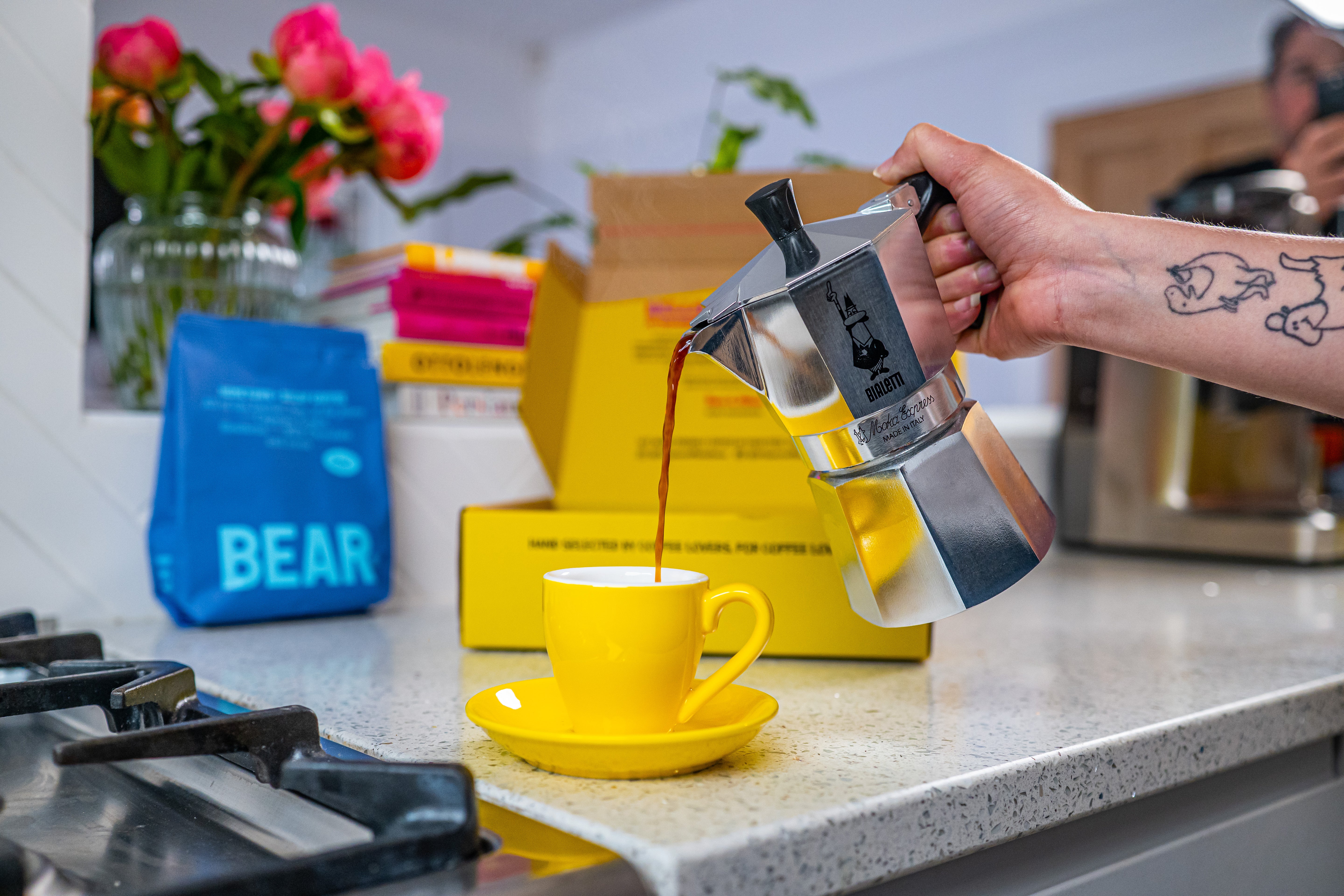
MONTHLY COFFEE DELIVERED TO YOUR DOOR
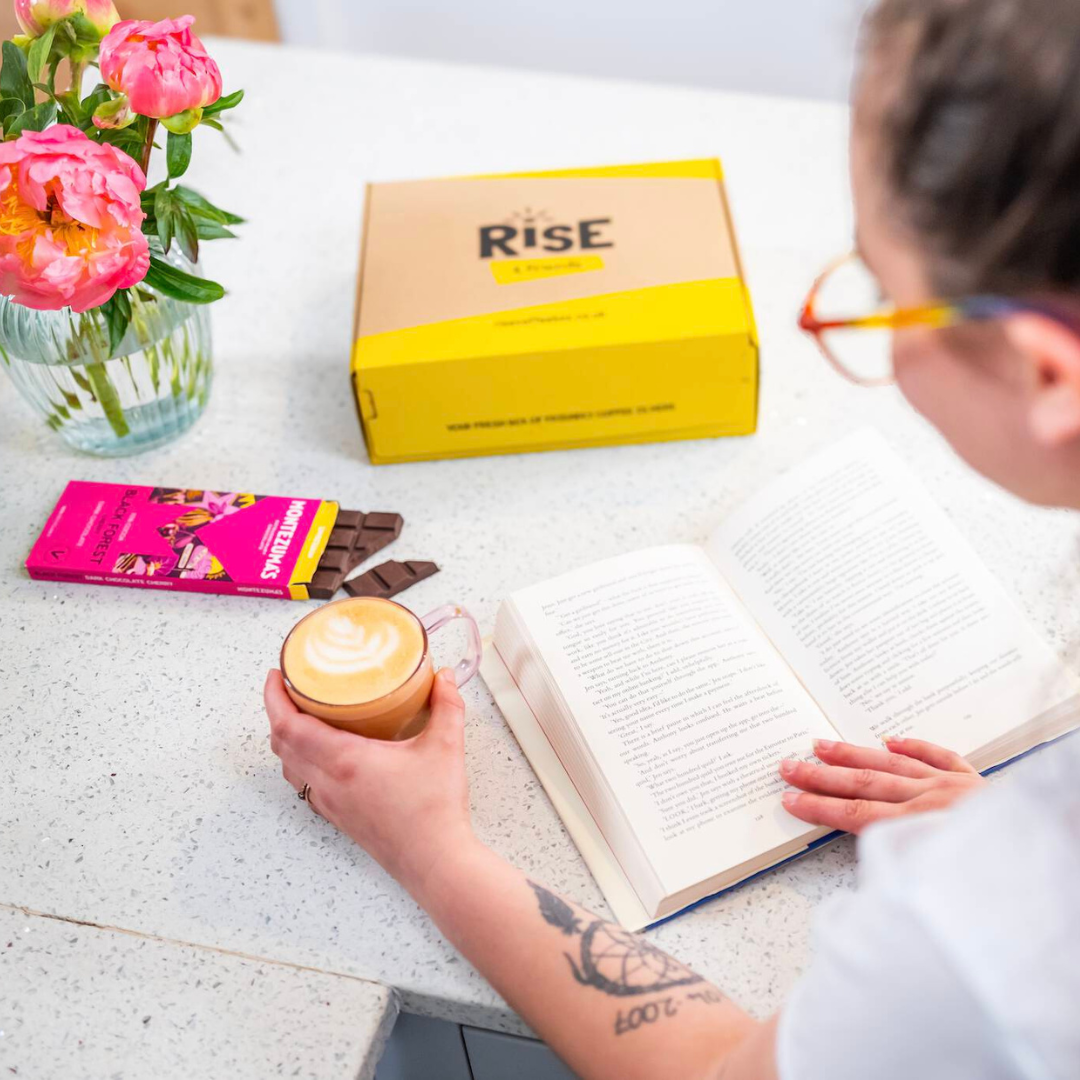








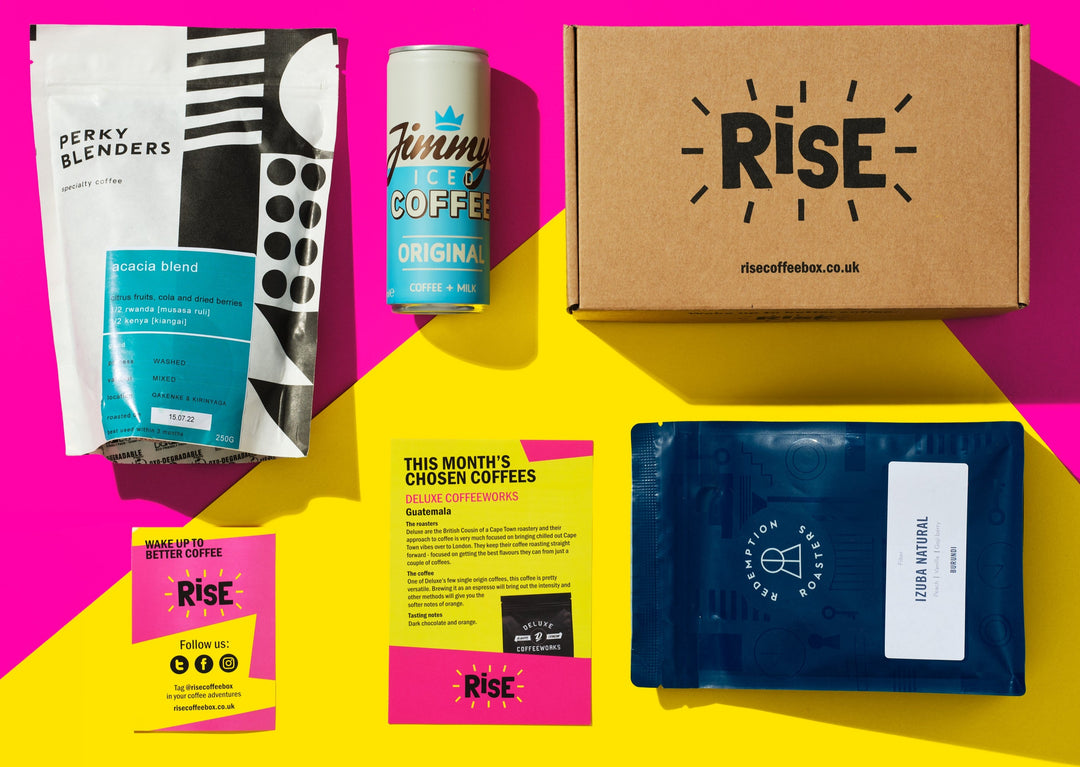

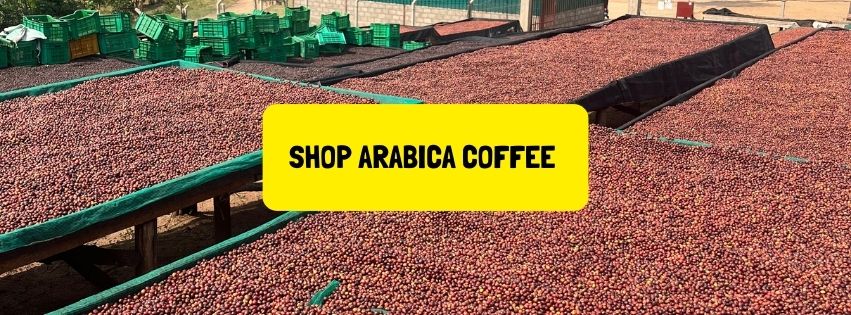
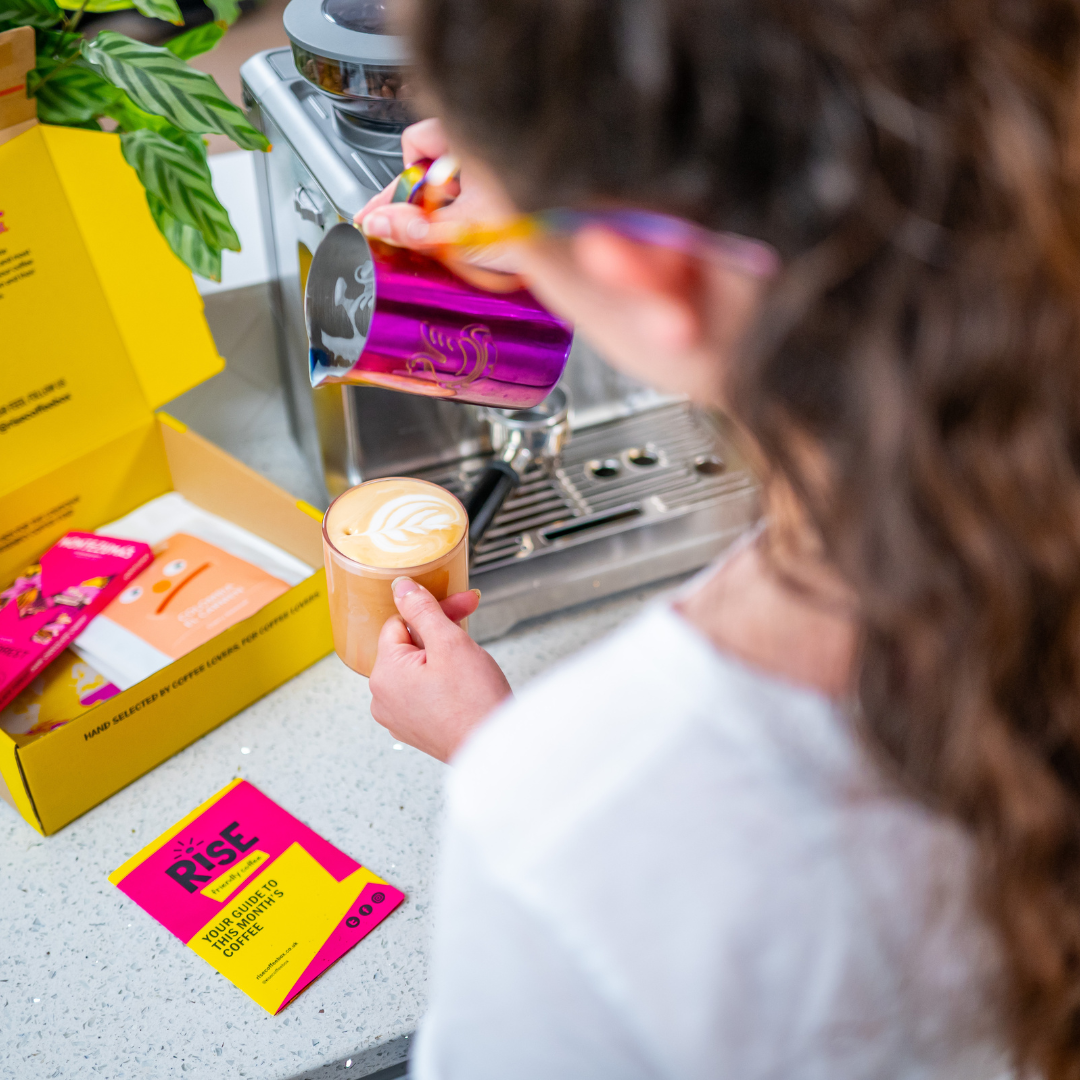
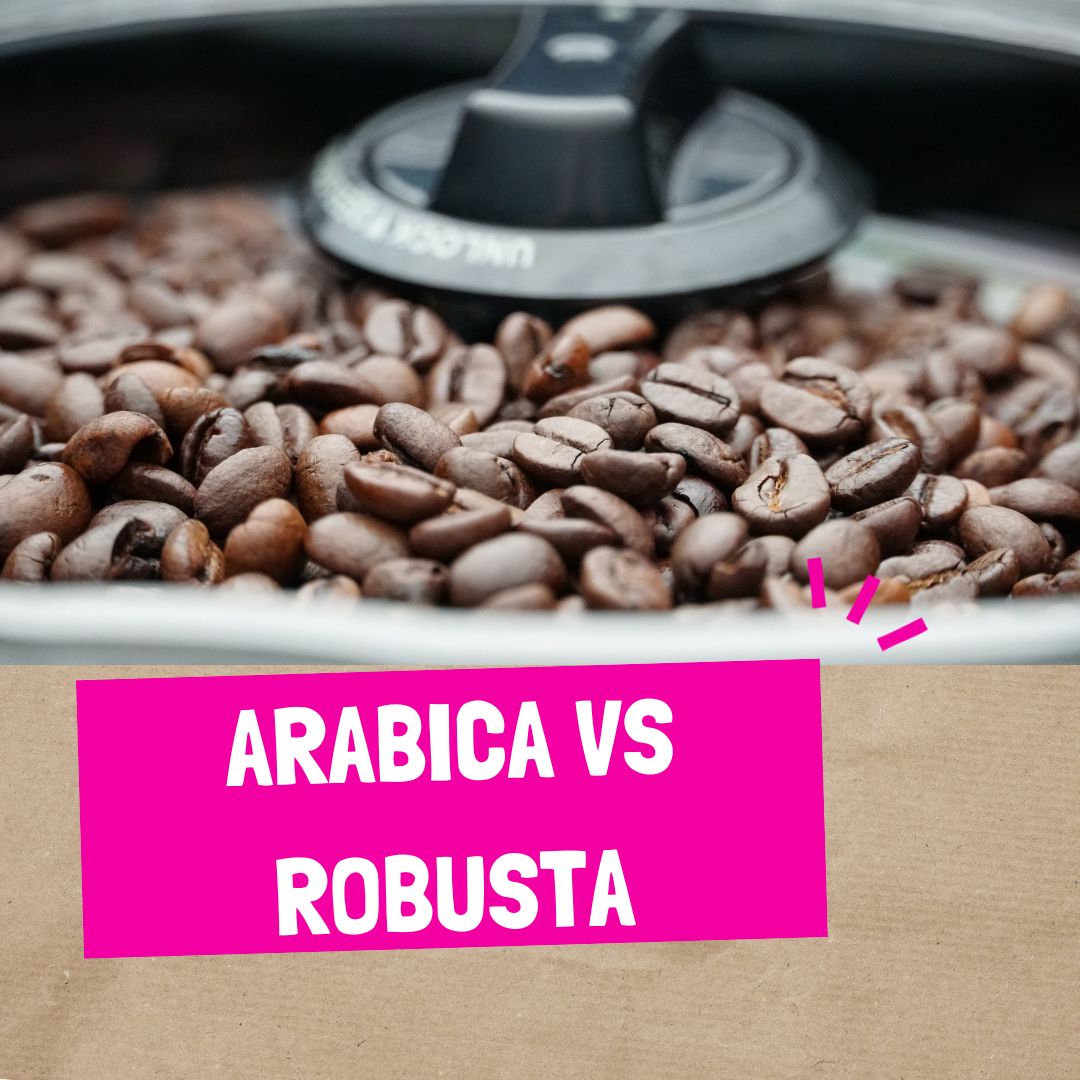


















Leave a comment